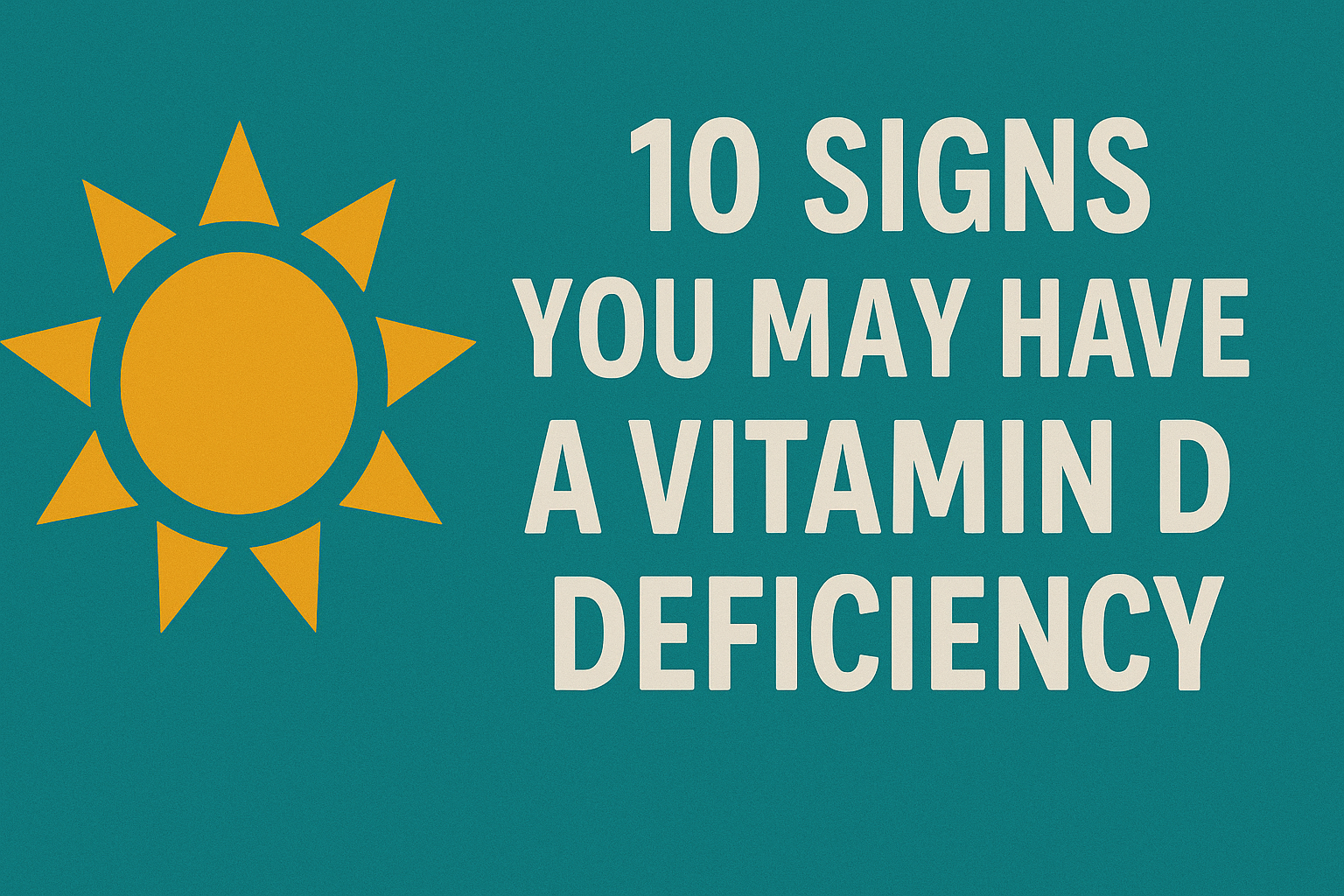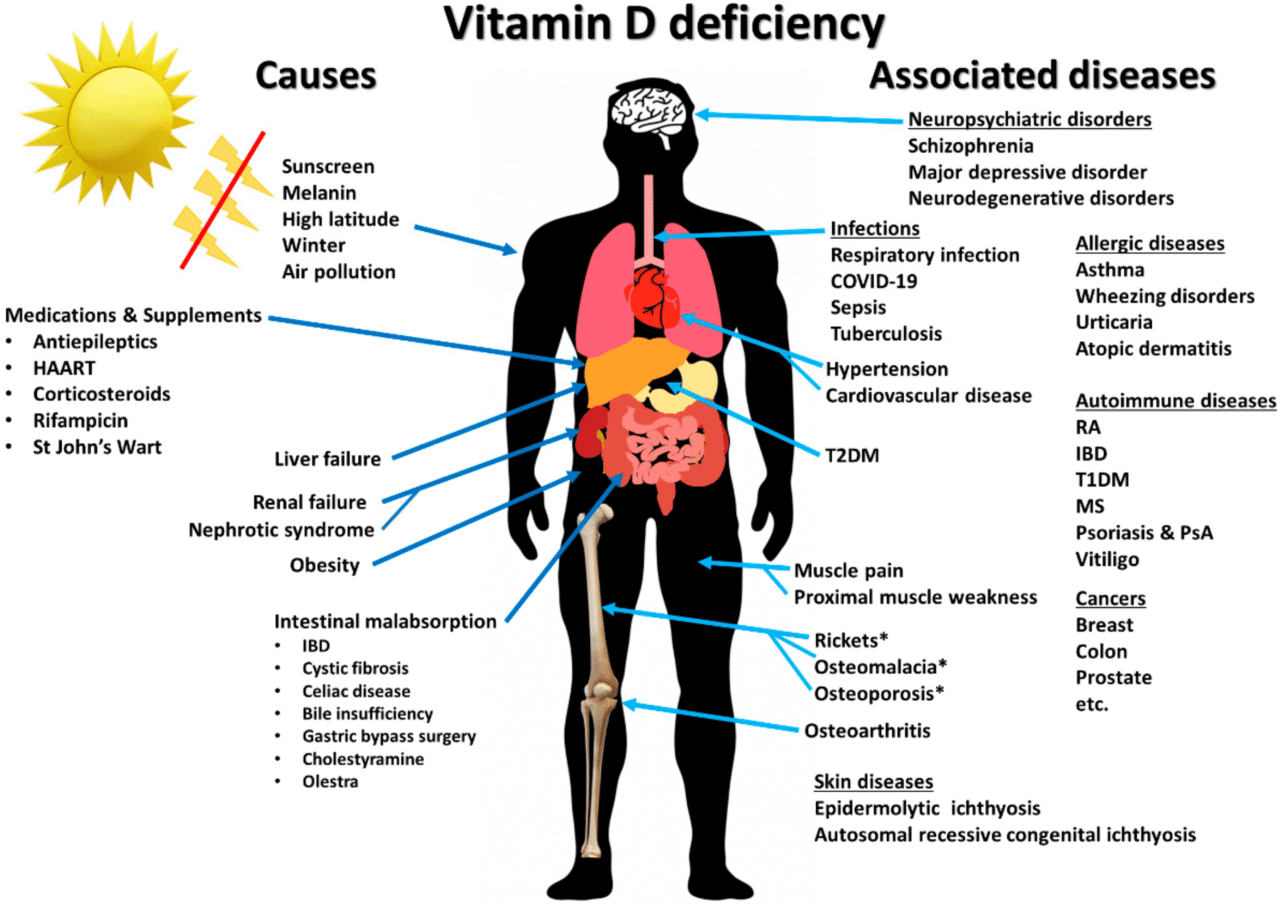In this post, I’ll share 10 common Vitamin D Deficiency signs, backed by expert research and personal experience, to help you recognize if you might need to increase your vitamin D intake.

Why Understanding Vitamin D Symptoms Matters
Vitamin D, often dubbed the “sunlight vitamin,” plays a critical role not only in bone health but also in immune function and mood regulation. According to [National Institutes of Health – Vitamin D Fact Sheet](https://ods.od.nih.gov/factsheets/VitaminD-Consumer/), a deficiency can lead to a range of health issues. Despite the importance, many people are unaware they may be lacking this vital nutrient until symptoms become troublesome.
In this post, I’ll share 10 common deficiency signs, backed by expert research and personal experience, to help you recognize if you might need to increase your vitamin D intake.
What Is Vitamin D and Why Is It Important?
Vitamin D is a fat-soluble vitamin that helps the body absorb calcium, promoting strong bones and teeth. It also supports muscle function and modulates immune responses. Our main source is sunlight exposure, which triggers vitamin D production in the skin, hence the nickname “sunlight vitamin.” It’s also found in certain foods and supplements.
The challenge? Many people don’t get enough vitamin D due to limited sun exposure, geographical location, skin pigmentation, or lifestyle factors. This shortage can trigger deficiency signs that are easily mistaken for other health problems.

10 Deficiency Signs: Could You Be Low on Vitamin D?
1. Persistent Fatigue and Tiredness
Feeling constantly drained despite adequate sleep can be a major vitamin D symptom. In my case, closing the energy gap only happened after a blood test revealed low levels, followed by supplementation.
2. Bone and Back Pain
Vitamin D deficiency can cause bone pain or chronic lower back pain. Studies note that vitamin D affects calcium absorption, impacting skeletal health (American Academy of Orthopaedic Surgeons).
3. Frequent Illness or Infections
If you’re regularly catching colds or the flu, low vitamin D might be compromising your immune system. Research shows vitamin D plays a key role in immune defenses [Harvard T.H. Chan School of Public Health].
4. Depression and Mood Swings
Vitamin D receptors are present in brain regions linked to mood regulation. Deficiency has been associated with increased risk of depression and mood disorders.
5. Hair Loss
Unexpected hair thinning or hair loss can sometimes be tied to vitamin D deficiency as it influences hair follicle health.
6. Slow Wound Healing
Vitamin D supports cell growth and immune function, essential for recovery. Deficiency may slow recovery from cuts and infections.
7. Bone Loss and Osteoporosis
Low vitamin D leads to decreased bone density, increasing fracture risk, especially in older adults.
8. Muscle Pain and Weakness
Studies show vitamin D deficiency can cause muscle weakness and pain, affecting mobility and quality of life.
9. Impaired Growth in Children
Children with deficiency may experience skeletal deformities or delayed development.
10. Sleep Problems
Emerging research links low vitamin D to poor sleep quality and insomnia.
How to Check Your Vitamin D Levels
If you recognize several of these deficiency signs, consider consulting a healthcare provider about a simple blood test measuring 25-hydroxy vitamin D levels. According to [NIH guidelines](https://ods.od.nih.gov/factsheets/VitaminD-HealthProfessional/), levels below 20 ng/mL indicate deficiency, while 20-30 ng/mL might be insufficient.
The Role of Sunlight Vitamin in Deficiency Prevention
Since sunlight triggers our body’s vitamin D production, getting regular safe sun exposure is essential. However, factors like sunscreen use, indoor lifestyle, or living in northern latitudes can reduce this natural source.
Consider daily habits such as:
- Spending 10-30 minutes in midday sun several times a week
- Including vitamin D-rich food (e.g., fatty fish, fortified dairy)
- Discussing supplements with your doctor if sun exposure is limited
My Personal Vitamin D Journey
After months of unexplained fatigue, my healthcare provider ordered a vitamin D test that confirmed a mild deficiency. Incorporating moderate sun exposure, dietary adjustments, and a prescribed supplement improved my energy and mood within weeks. I share this to remind you that identifying deficiency signs early can make a real difference.
Note: I received no compensation for recommending testing or supplements—my perspective is based on genuine experience and research.
Frequently Asked Questions (FAQ)
Is testing for vitamin D worth it?
Yes. Testing provides clarity on your vitamin D status and guides appropriate supplementation, preventing potential health complications.
Can sunlight alone provide enough vitamin D?
For many, moderate unprotected sun exposure during peak hours can suffice, but factors like skin type, location, and season affect effectiveness.
Are supplements safe for vitamin D deficiency?
Generally, vitamin D supplements are safe when taken as directed by a healthcare professional. Excessive intake can cause toxicity.
What foods are highest in vitamin D?
Fatty fish (salmon, mackerel), fortified milk and cereals, and egg yolks are rich sources.
Can vitamin D deficiency cause chronic diseases?
Research links deficiency to osteoporosis, cardiovascular diseases, and possibly autoimmune disorders, highlighting the importance of maintaining adequate levels.
Final Thoughts
Vitamin D is more than just the “sunlight vitamin”—it’s a cornerstone of your health. Recognizing early deficiency signs can empower you to take action before problems escalate. Whether through safe sun exposure, diet, or supplements, maintaining optimal vitamin D levels supports vitality, immunity, and well-being.
If you suspect you might have a vitamin D deficiency, speak with your healthcare provider for proper testing and personalized advice.
For more information on vitamin D and health, visit trusted sources like Centers for Disease Control and Prevention (CDC) and National Institutes of Health (NIH).

